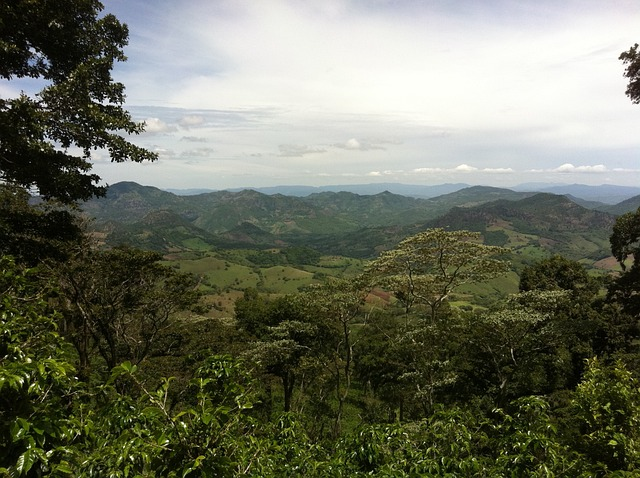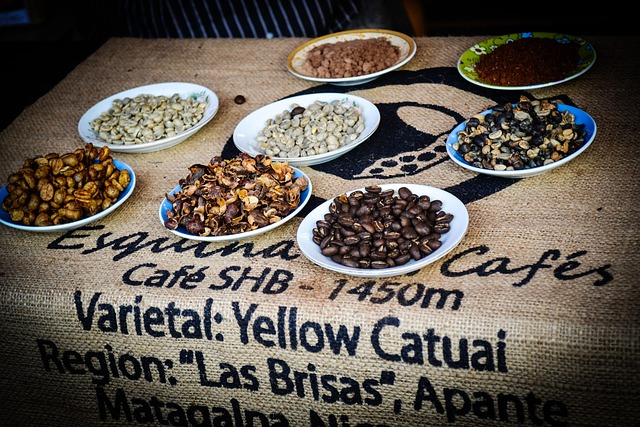
Why Nicaraguan Coffee Should Be On Every Coffee Fan's Bucket List
Share
-
The geography of Nicaraguan coffee growing regions infuses these coffees with a well-rounded, deep, and often sweet flavor profile. The Jinotega Region in particular is renowned for top-notch Arabica coffee beans, which mature slowly due to the cool climate and high altitude.
-
Most coffee in Nicaragua is grown by cooperatives of small landowners that apply sustainable methods, and in many cases are certified for quality, lack of synthetic inputs, or fair trade by regional agencies.
-
While Nicaragua is an increasingly relevant coffee exporter, it remains well behind other Central American coffee producers and is not even in the top 10 globally.
While Central America's Guatemala is one of the biggest coffee producers in the world, and you'll find blends everywhere you look, the lesser-known Nicaragua is producing some killer, high-quality beans that are gaining notoriety globally.
Nicaraguan Coffee Growing Regions

When it comes to flavor, few roasts beat high-quality organic Nicaragua coffee. Thanks to a favorable climate and elevated growing regions, the best coffee from Nicaragua tends to have mild acidity accompanied by a smooth body and, commonly, hints of chocolate, vanilla, or other sweet flavors. Nicaraguan coffee is often an all-around great roast. Most coffee trees in Nicaragua are strictly high-grown on farms in the mountains, giving Nicaraguan coffee its beloved characteristic flavors.
Like other Central American coffees, different growing regions pack different flavors, and Nicaraguan coffee is no exception.
The Jinotega Region
Head to northern Nicaragua and you'll find the most renowned coffee in the country.
Noted for high-quality production processes, the Jinotega region is full of family cooperative farms drawing flavor from the Isabella mountains, which peak at over 2,100 meters near the border with Honduras.
Much of the organic Nicaragua coffee grown in this region, including coffee from Philly Fair Trade, is produced by cooperatives that work with certification agencies to ensure the fair trade, sustainable growth of every bean. Many, including UCASUMAN from which we source our Nicaraguan beans, also support social projects and family security in the area.
The higher-than-average altitude as well as the cooler climate combine to create distinctive flavor profiles throughout Jinotega. What makes the difference? In colder climates at higher elevation, coffee matures at a slower rate, creating deeper and more varied flavor profiles as the coffee pulls vitamins and minerals from the soil.
The Matagalpa Region
Just a little further south is the Matagalpa region of Nicaragua, recognized for storied artisanal approach to coffee production. While Matagalpa produces less coffee than its more well-known neighbor Jinotega, it's almost a given that coffees that come from this area are wholly organic and mostly fair trade.
The Segovias Region
Less than fifty miles to the west and you'll find yourself in a region similar to Jinotega called Las Segovias. Another great example of top-notch Nicaraguan coffee, coffees from this area are cited for citrus and chocolate notes.
Nicaraguan Coffee Export and Cultivation Facts

Despite exporting millions of pounds of coffee every year, Nicaragua is still not even among the top ten biggest coffee exporters in the world.
The Coffee Trees
Nicaragua mostly cultivates Arabica beans, which are the most popular globally by far, with over 60% of the world's coffee coming from this African plant. The Arabica plant thrives in the microclimates that exist in between mountains and in the high humidity of Central America, South America, Africa, and many South-Asian countries.
Nicaragua's coffee farmers also tend embrace sustainable methods of cultivation that preserve the biodiversity of their area. Smaller growers often have greater flexibility and profit incentive to apply ethical methods because they're not owned by large multinational companies. Farmers here are generally part of cooperatives that involve many smallholder farms, allowing for a more inclusive industry.
The Best Nicaragua Coffee Online from Philly Fair Trade
Our Jinotega Roast is a perfect example of the best Nicaraguan coffee for first-timers and aficionados alike. While it's not the most well-known coffee in the world, farmers with the UCASUMAM cooperative produce great coffee, grown with eco-friendly practices (over 50% of their farms are organic) and towards community-driven efforts. The beans in our Nicaraguan roast are produced under the shade of native trees, too, allowing the cooperative to achieve Bird Friendly Certification® through the Smithsonian Institution's rigorous habitat standards.
Click here to learn more and order Nicaraguan coffee online.

